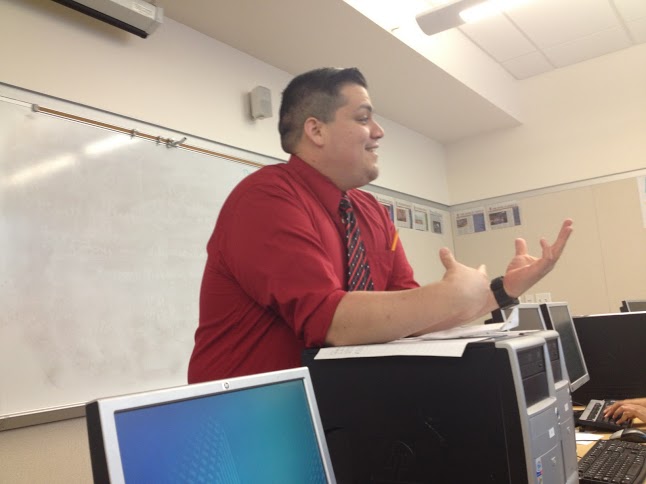By the time students reach high school, they experience ten years of teachers’ stories, knowledge, and opinions. But how much of teachers’ personal lives should be shared in the classroom, and what topics should not be discussed?
Teachers have a hard time finding the line between professional and inappropriate classroom discussions. Some of the challenges include the amount of their personal lives they should share, which life stories to turn into examples, and how to not give influential opinions. While deciding which parts of their personal lives should be shared to get their point across, teachers still struggle with the kind of material that they share.
“When you give a student information about you, you have no way of knowing how it’s going to be used later,” said Ms. Robinson*.
Students may feel that when teachers go on a personal lecture that’s not related to the subject, it’s just a good way to avoid doing work.
Other than that, it feels more than unnecessary to students. Many topics that students feel are unnecessary are when teachers judge their generation, share personal stories that have no relevance to the subject, and bring up inappropriate opinions.
“I don’t like when your teacher goes way off topic for like the whole period, but then still expect you to walk in the next day knowing the new material when they never taught it,” said Junior Alyssa Arhontes.
Students don’t tend to have the guts to confront their teachers when they feel that certain topics may be offensive said Ms.Robinson*. Teachers then unknowingly may have already crossed the invisible line between professionalism and inappropriateness.
For example, in 2012, a political science professor at USC made outrageous remarks about republicans being “old, white, racist, and losers” which brought a lot of negative attention towards him.
“I think teachers need to be seen by students as ‘real’ people with similar issues and interests as students, so students can trust teachers,” said Mr. Cornwallis*. “That being said, they should not disclose info that makes students believe bad behavior is okay or that they should do things not appropriate.”
Teens can be influenced easily. Because of their inexperience in the world, they retain others’ information and opinions a lot easier than being able to decide something on their own. When teachers do go off-topic, they really have to make sure nothing they say will strongly influence a student’s opinion on a topic. When teachers lecture, the students have no option other than to just sit there and retain the information.
“Kids are a captured audience, they know that they have to sit there and listen. As teachers, we have to be careful we don’t abuse that privilege,” said Mr. Jackson*.
In a classroom surrounded by 25 plus students, it is a very intimidating thing for teachers to experience, and they tend to feel more comfortable when they are considered friends with their students, said Ms.Robinson*. But doing so can really impair a teacher’s ability to differentiate between what is professional and what is not.
In the eyes of the administration, teachers are people who are meant to not only teach you a subject but to do it in a way that some life lessons can be made. They are also meant to be a kind of guidance to help you prepare for your future.
“The primary focus of classroom discussion is always on whatever the topic is in that content area,” said Principal Mrs. Shimizu. “As long as their explanation supports the content then it’s typically appropriate info.”
So when a teacher is doing their job, what topics really should not be allowed?
“There are four topics that you don’t ever talk about: sex, religion, politics, and money,” said Ms.Robinson*. “Because everyone has their own opinion and my job is not to engender an argument.”
* Names have been changed to preserve anonymity




































